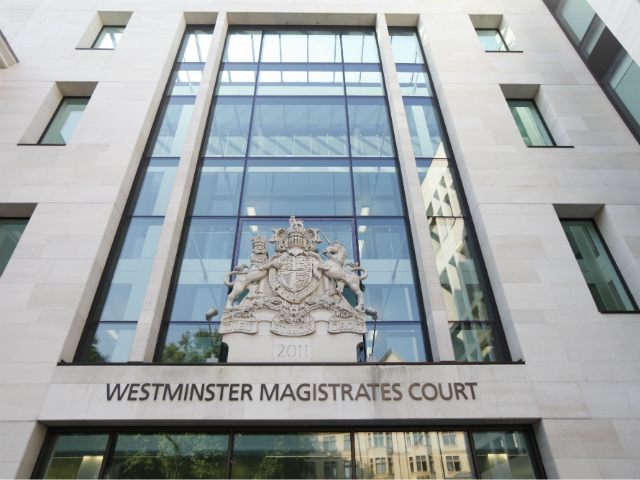Three men, including two British soldiers, who are accused of membership of the proscribed neo-Nazi National Action group appeared in court on terror charges.
Soldiers Mikko Vehvilainen and Mark Barrett and civilian Alexander Deakin are accused of being part of the banned organisation and appeared at Westminster Magistrates Court on Tuesday morning, reports The Guardian.
Five men, including four soldiers, were arrested last week on terrorism charges (two were released Saturday without charge).
All were arrested “on suspicion of being concerned in the commission, preparation and instigation of acts of terrorism under Section 41 of the Terrorism Act 2000; namely on suspicion of being a member of a proscribed organisation (National Action) contrary to sec 11 of the Terrorism Act”.
Vehvilainen, 22, based at Sennybridge Camp, Brecon, Powys, is also charged with publishing threatening, abusive, or insulting material on a website, possessing a document “containing information likely to be useful for terrorism”, and possessing pepper spray.
Barrett, 24, based at Gaza Crescent in Dhekelia Garrison, Cyprus, faces a single charge of membership of National Action.
Deakin, 22, from Birmingham, faces a single charge of membership of National Action as well as possession of documents likely to be useful to a person preparing to commit an act of terrorism, and distribution of a terrorist publication. He is also charged with inciting racial hatred after displaying National Action stickers at Aston University campus in Birmingham in July 2016.
The proscription of National Action was billed as the first “right wing” group to be banned in the United Kingdom, joining a list of some 70 mostly international Islamist terror groups. The neo-Nazi group is described by the Home Office as “virulently racist, antisemitic and homophobic”.
According to a West Midland Police spokesman, the arrests were “pre-planned and intelligence-led and there was no risk to the public’s safety”.

COMMENTS
Please let us know if you're having issues with commenting.